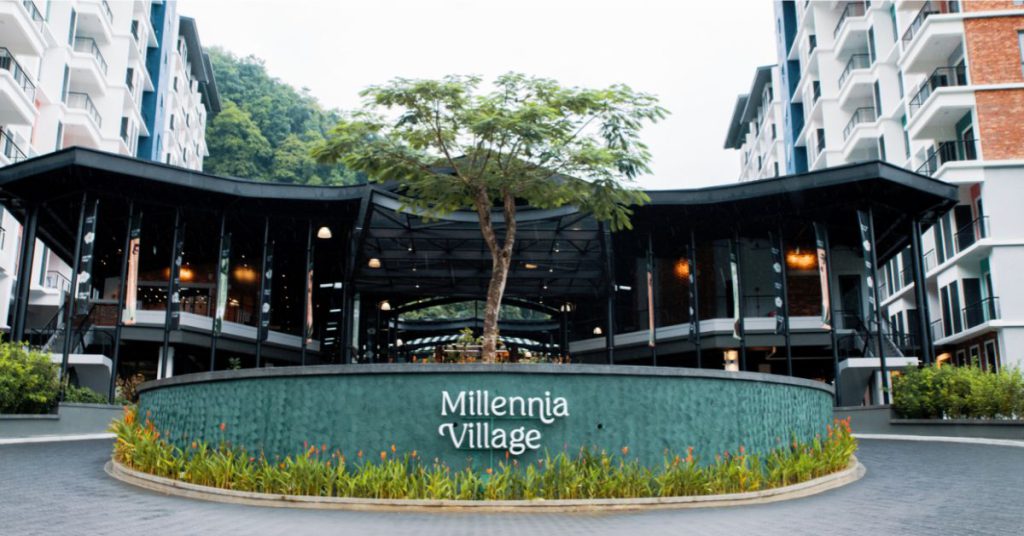From attending several business conferences this year, such as Tech in Asia, KL20, and Alliance Bank BizSmart, one thing has become clear.
Conversations about AI adoption, automation, and sustainability dominate panel discussions and coffee breaks alike. It’s not just about keeping up anymore—it’s about leveraging these tools to thrive.
While 2024 hasn’t been a year of breakthroughs, it’s been a year of laying the groundwork. Businesses are exploring the potential of AI, and we’re seeing pockets of innovation in sectors like chip manufacturing and agrotech.
But where does all this lead us in 2025? Drawing insights from entrepreneurs and trends observed throughout 2024, here are some predictions for the coming year.
The AI revolution: From hype to practical applications
While 2024 introduced many Malaysians to the potential of AI through tools like ChatGPT and Amazon Web Services solutions, Edwin Wang, the CEO of Signature Market, predicts that 2025 will see Malaysian businesses focus on integrating AI for enhanced productivity and revenue generation.
Dylan Tan, founder and CEO of Replyr.ai, observed, “AI will level the playing field by enabling nimble firms to outperform larger competitors with greater efficiency and adaptability. Smaller companies are already challenging incumbents by leveraging AI.”

From agentic AI systems acting as virtual colleagues to more sophisticated automation tools for SMEs, the use of AI is expected to expand significantly in 2025.
AI agents, according to Dylan, are already lowering entry barriers for startups in competitive industries. But there’s a caveat: startups must continuously innovate or risk irrelevance.
“If your offering doesn’t improve with every new AI model launch, you’re on shaky ground,” Dylan warned.
In agrotech
While industries like ecommerce and finance are often at the forefront of discussions about artificial intelligence, agrotech is another sector that can benefit from it.
One example of this is HEXA IoT, a local company specialising in Industry 4.0 solutions for the environmental, agriculture, and manufacturing sectors.
HEXA IoT was part of the MRANTI Global Accelerator Programme (GAP) and recently showcased an innovative device called Project A3. This device stands out because it integrates AI with a 5G remote-controlled all-terrain vehicle, which tracks crop performance to improve harvests.

But AI in agrotech aside, Entrepreneurs and Startup in Malaysia (EnSIM) founder Daniel Cerventus Lim believes that the agrotech industry itself still has untapped potential. He noted, “Globally, AI will dominate, but in Malaysia, agrotech startups could make a significant impact.”
Therefore, AI-powered or not, there’s a good chance that Malaysia’s agrotech startups will still be making waves in the economic landscape.
In marketing
Marketing, once an art of human connection through storytelling and personalised experiences, is now increasingly driven by AI, handling tasks like customer analysis, SEO strategies, and generating ad copy.
Justin Tai, co-founder of Hypercharge, aptly highlighted this trend, stating, “I believe the use of AI in digital marketing, especially SEO, is something that is up and rising and becoming a necessity for most, if not all, marketers in the world.”
AI could “reduce opex brought from daily repetitive tasks including but not limited to: handling customer inquiries, copywriting, and trend and data analysis,” he pointed out.
He also encouraged local businesses to adopt Search Generative Experience (SGE) and Geo-Enhanced Optimisation (GEO). “With the growing use of tools like SearchGPT, those that don’t adapt may lose market share to competitors,” he said.
AI challenges: Talent gaps and job disruptions
However, the rise of AI also brings its own set of challenges. One of the most pressing is the difficulty in finding talent to lead AI initiatives.
“Even at Replyr, we couldn’t find experienced hires; we had to train people from scratch,” Dylan admitted. This talent gap might persist in 2025, but it also presents opportunities for upskilling.
Daniel believes AI agents and automation could be game-changers for SMEs. However, he also noted, “Since AI agents are going to be big, there is also a lot of demand for that, but that might lead to the displacement of jobs.”
“[Then there’s also Trump’s presidency], which is going to force the business owners of countries such as China to look elsewhere, such as Malaysia, and their cost might be hard to fight in Malaysia,” he added.
Our ageing population is an emerging niche for entrepreneurs to tap into
As populations age both globally and locally, another emerging area is longevity and ageing-focused businesses. With Malaysia set to become an ageing population by 2030, startups catering to this demographic—from health tech to senior-friendly services—may see growth, said Daniel.
For example, retirement villages are starting to catch on, where they offer a community-focused vibe that encourages independent living while still providing different levels of support when needed.

Even venture capitalists are getting in on the action by investing in senior care homes, which shows just how much potential this sector has.
The push for sustainability will grow, led by consumer demand
Sustainability, especially in the context of ESG (Environmental, Social, and Governance) standards, is also gaining momentum.
Daniel believes sustainability is poised to influence bottom lines, but the real push has to come from consumers.
“As long as there’s demand, businesses will follow the trend,” he noted. He pointed out AEON as an example, equipping suppliers with the necessary tools and knowledge to adopt sustainable practices, signalling a growing emphasis on ESG.
Dylan added, “Transparency, sustainability, and ethical behaviour are no longer optional; they’re essential for survival.” Malaysian consumers, particularly Gen Z, are increasingly vocal about their expectations, pushing companies to adapt.
However, Edwin feels Malaysia tends to follow global trends rather than lead them. With political shifts like Trump’s policies deprioritising ESG, he predicts Malaysian companies might not focus heavily on sustainability by 2025.
He’s also sceptical about significant EV car adoption or major startup investments in ESG-related areas happening anytime soon.
Data centres, chip manufacturing & semiconductor sectors will continue to grow
Malaysia’s semiconductor industry experienced steady growth in 2024, and this trend is set to continue.

Edwin highlighted that “data centres and chip manufacturing will rise due to the influx of Chinese companies seeking to mitigate tariff risks from the US.”
Penang, in particular, has emerged as a hub for high-paying jobs in the semiconductor sector. The resulting rise in middle-income salaries could spark lifestyle and consumption trends, benefiting local startups.
“Lifestyle industries in Penang and Johor are set to boom, catering to richer professionals and even spillover from Singapore,” Edwin noted.
Niche communities & fragmented markets spell business opportunities
Gen Y and Z’s increasing purchasing power is driving a shift towards niche, community-focused offerings.
This trend is already evident in sports, with innovations like pickleball courts offering cafe-style resting areas. “Soon there will be such experiences for all the sports,” noted Edwin.
It’s hard to ignore the number of pickleball courts that have already mushroomed in Malaysia this year.

Entrepreneurs are seizing opportunities to cater to specific interests, creating unique experiences that resonate with younger consumers. Expect to see more startups capitalising on this trend in 2025.
-//-
Whether these trends accelerate or stagnate will depend on various factors, including global policies, local market dynamics, and consumer priorities.
While we may not see revolutionary breakthroughs, incremental progress in AI adoption, agrotech, and niche markets could set the stage for a more dynamic startup ecosystem.
Malaysia has always been a fast follower rather than a first mover, but with the right investments in talent and technology, it might just find its own unique stride. If 2024 was about laying the groundwork, 2025 will be about building on it.
- Read other articles on Malaysian startups here.
Featured Image Credit: Daniel Cerventus Lim, founder of NextUpAsia / Edwin Wang, CEO of Signature Market / Dylan Tan, founder and CEO of Replyr







Leave a Comment